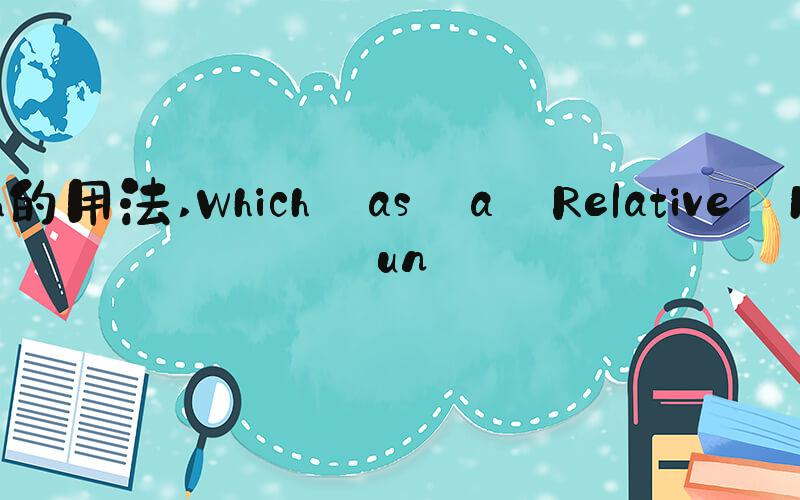AI答案
 Introduction
IntroductionWhich is a pronoun that is used to provide additional information about a noun or a subject. It is often used to ask questions or to clarify a statement. This article will discuss the various uses of "which" and provide examples to illustrate each usage.
Which as a Relative PronounOne of the most common uses of "which" is as a relative pronoun. It is often used to introduce a subordinate clause that provides additional information about the noun or subject in the main clause. For example:
"The book, which I just finished reading, was excellent."
In this sentence, "which" is used to introduce the subordinate clause "I just finished reading." The subordinate clause provides additional information about the noun "book."
Which as an Interrogative Pronoun"Which" can also be used as an interrogative pronoun to ask questions. For example:
"Which movie do you want to see tonight?"
In this sentence, "which" is used to ask a question about the noun "movie."
Which as a Demonstrative Pronoun"Which" can also be used as a demonstrative pronoun to point out or identify a specific noun or subject. For example:
"Which shirt should I wear, the blue one or the red one?"
In this sentence, "which" is used to identify the specific noun "shirt."
Which vs. ThatOne common point of confusion is the difference between "which" and "that" when used as relative pronouns. In general, "that" is used to introduce restrictive clauses, while "which" is used to introduce non-restrictive clauses. A restrictive clause provides essential information about a noun or subject, while a non-restrictive clause provides additional information that is not essential to the meaning of the sentence.
For example: "The book that I just finished reading was excellent" versus "The book, which I just finished reading, was excellent."
In the first sentence, "that" is used to introduce a restrictive clause that provides essential information about the noun "book." In the second sentence, "which" is used to introduce a non-restrictive clause that provides additional, but not essential, information about the noun "book."
ConclusionIn conclusion, "which" is a versatile pronoun that can be used in a variety of ways to provide additional information about a noun or subject, to ask questions, or to point out or identify something specific. It is important to understand the different uses of "which" in order to use it correctly in your writing or speech.
